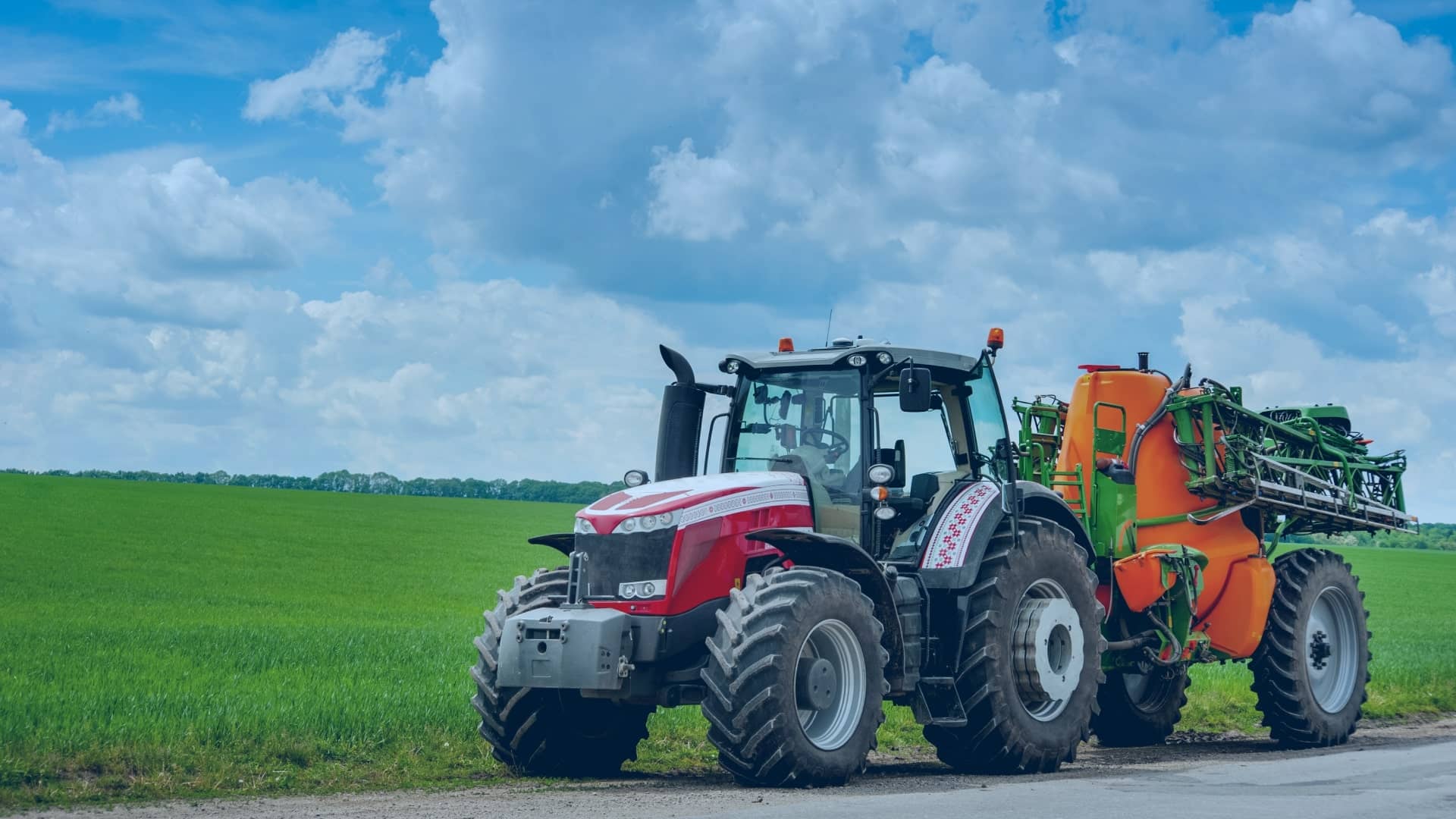In the vast, green fields of modern agriculture, technology plays a pivotal role. Among these technological advancements, tire monitoring systems have emerged as a key player. The trend in agricultural tire monitoring is not just a fleeting fad; it’s a significant leap towards more efficient and sustainable farming practices. In this blog, we will explore how smart tire monitoring is revolutionizing agriculture, focusing on the features of our cutting-edge tire monitoring solutions.
The Rise of Smart Agriculture
Agriculture has always been a sector that adapts and grows. With the advent of smart farming, this adaptability has taken a quantum leap. Smart agriculture involves the integration of technology into farming practices to increase efficiency and productivity. It’s here that smart tire monitoring systems come into play.
Why Tire Monitoring is Crucial
Tires are the backbone of agricultural machinery. Their health and efficiency directly impact the performance of tractors and other farm equipment. Traditionally, tire maintenance has been a manual, time-consuming process. However, with smart tire monitoring systems, this is changing for the better.
Tire monitoring in agriculture is not merely about maintaining equipment; it’s a crucial factor in optimizing farm operations. Here’s why:
- Enhanced Equipment Performance: The condition of tires directly affects the performance of agricultural machinery. Properly inflated and maintained tires ensure that tractors and other equipment operate efficiently, offering better traction and reducing slippage in the field.
- Fuel Efficiency: Incorrect tire pressure leads to increased fuel consumption. Monitoring tire pressure ensures that tires are always at the optimum level, reducing fuel costs significantly.
- Extended Tire Life: Regular monitoring and maintenance of tires extend their lifespan. This is vital in agriculture, where equipment is a significant investment.
- Soil Health: Over-inflated or under-inflated tires can cause soil compaction, which negatively affects soil health and crop yields. Proper tire monitoring helps maintain optimal tire pressure, reducing the risk of soil compaction.
- Safety: Tire failures can be hazardous. Continuous monitoring reduces the risk of accidents caused by tire issues.
The Evolution of Tire Monitoring in Agriculture
Tire monitoring systems have evolved from simple pressure checks to sophisticated systems that provide real-time data on tire health. This evolution is a game-changer for farmers, who can now prevent tire-related issues before they occur, ensuring minimal downtime and maximum productivity.
Tire monitoring technology in agriculture has evolved significantly:
- Early Days: Initially, tire monitoring was manual, with farmers checking tire pressure using hand-held gauges. This process was time-consuming and often inaccurate.
- Introduction of TPMS: Tire Pressure Monitoring Systems (TPMS) were a major advancement. These systems provided basic alerts when tire pressure fell below a certain level.
- Smart Monitoring Systems: Modern systems have evolved to offer real-time data, not just on pressure but also on temperature and tread wear. These systems can be integrated with other farm management software for comprehensive equipment monitoring.
- Predictive Analytics: The latest systems use data analytics to predict tire wear and potential failures, allowing for proactive maintenance and reducing downtime.
Features of Advanced Tire Monitoring Systems
Our tire monitoring solution stands out in the market. It offers a range of features designed to make tire maintenance effortless and efficient:
- Real-Time Pressure and Temperature Monitoring: The system constantly checks the pressure and temperature of each tire, alerting you to any anomalies immediately.
- Predictive Maintenance Alerts: By analyzing tire performance data, our system predicts potential issues, allowing for proactive maintenance.
- User-Friendly Interface: The intuitive interface makes it easy to monitor and analyze tire data, ensuring that even those less tech-savvy can benefit from our system.
Benefits of Using Smart Tire Monitoring in Agriculture
Let’s delve deeper into the benefits of using smart tire monitoring systems in agriculture, highlighting how they contribute significantly to modern farming practices.
Maximizing Equipment Utilization and Productivity
- Optimized Machinery Performance: Smart tire monitoring in agriculture ensures that tires are always at the ideal pressure, which maximizes the traction and efficiency of farm machinery. This leads to faster completion of tasks and more efficient use of equipment.
- Minimized Field Time for Machinery: By reducing issues like slippage and tire-related breakdowns, these systems ensure that machinery spends more time working in the field rather than being sidelined for repairs.
Financial Savings and Economic Sustainability
- Reduced Operational Costs: Proper tire maintenance cuts down on fuel consumption, as well-maintained tires require less energy to operate. This translates to significant fuel cost savings over time.
- Prolonged Tire Life: Regular monitoring and maintenance can extend the life of tires, delaying the need for expensive replacements and thus reducing the overall cost of equipment maintenance.
- Decreased Risk of Costly Downtime: Smart monitoring systems can detect potential tire issues before they lead to breakdowns, preventing costly downtime during critical farming periods.
Environmental Impact and Sustainability
- Lowered Carbon Footprint: Efficient tire usage results in lower fuel consumption, which directly reduces the carbon footprint of farming operations, contributing to more environmentally friendly practices.
- Prevention of Soil Compaction: Correct tire pressure is essential in avoiding soil compaction, a significant issue that can negatively impact soil health and crop yields. Healthier soil supports sustainable farming and better yields.
Data-Driven Farm Management
- Informed Decision Making: With access to real-time data and predictive analytics, farmers can make more informed decisions regarding tire maintenance, replacements, and overall equipment management.
- Integration with Farm Management Systems: Many smart tire monitoring systems can be integrated into broader farm management software, providing a holistic view of farm operations and enabling better resource allocation.
Safety and Compliance
- Enhanced Safety: Proper tire maintenance reduces the risk of accidents caused by tire blowouts or failures, ensuring a safer working environment for farm operators.
- Regulatory Compliance: In some regions, maintaining proper tire conditions is not just good practice but also a regulatory requirement. Smart tire monitoring helps in staying compliant with such regulations.
Customization and Scalability
- Tailored Solutions for Different Needs: Smart tire monitoring systems can be customized to suit different types of machinery and farm sizes, making them a versatile solution for a wide range of agricultural needs.
- Scalability for Growing Operations: As farms expand, these systems can scale up to meet the growing demands, ensuring that tire monitoring remains efficient regardless of the size of the operation.
The Future Trends in Tire Monitoring
The future of tire monitoring in agriculture is bright and filled with potential. Here’s what we can expect:
- Integration with Autonomous Machinery: As autonomous tractors and machinery become more common, tire monitoring systems will play a crucial role in their operation.
- Advanced Data Analytics: With the integration of AI and machine learning, tire monitoring systems will provide even more insightful analytics.
- Sustainability Focus: Future developments will focus on enhancing the sustainability aspect of farming.
Conclusion
In conclusion, smart tire monitoring represents a significant step forward in the evolution of agriculture. By embracing these advancements, farmers can enjoy increased efficiency, reduced costs, and a smaller environmental footprint. In the green fields of the future, smart tires will play a crucial role in the sustainable and efficient production of our food. The trend in tire monitoring is not just a technological advancement; it’s a commitment to a smarter, more sustainable future in agriculture.



